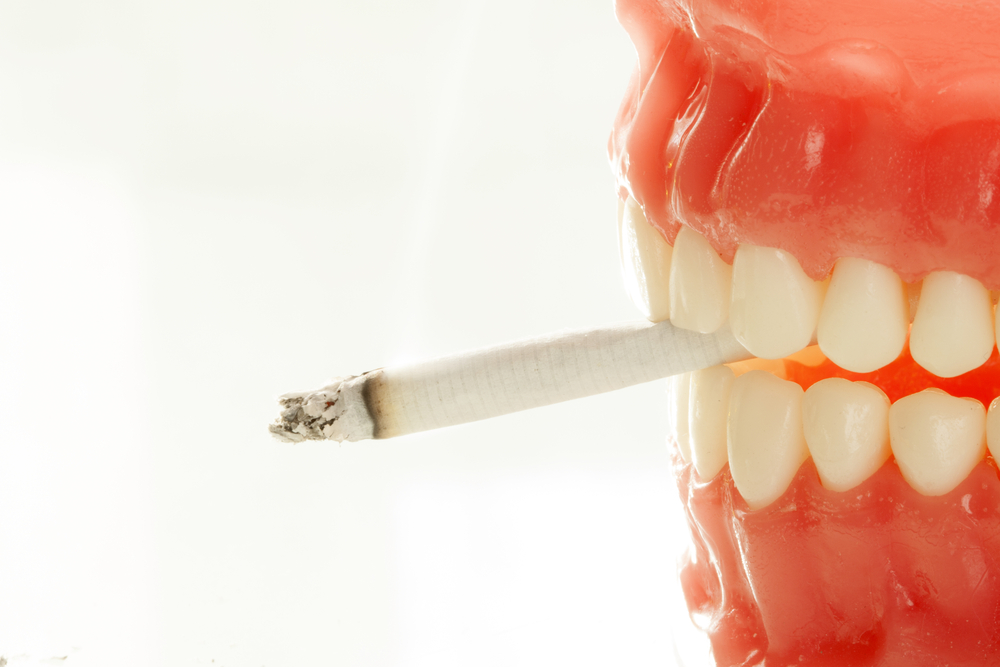How Does Smoking Affect Dental Implants?
 Dental implants are a major breakthrough in dentistry that allow patients to replace their missing teeth with realistic, fully functioning restorations. Shaped like an actual tooth root, implants can be so effective that their success rate is 95 to 98 percent. Rare cases in which a dental implant has failed—meaning the implant was unable to fuse with the jawbone or integrate with the supporting restoration—are often due to poor oral hygiene and/or a weak bone structure. Given that tobacco use can cause or worsen both, smoking is one of the leading risk factors of implant failure.
Dental implants are a major breakthrough in dentistry that allow patients to replace their missing teeth with realistic, fully functioning restorations. Shaped like an actual tooth root, implants can be so effective that their success rate is 95 to 98 percent. Rare cases in which a dental implant has failed—meaning the implant was unable to fuse with the jawbone or integrate with the supporting restoration—are often due to poor oral hygiene and/or a weak bone structure. Given that tobacco use can cause or worsen both, smoking is one of the leading risk factors of implant failure.
The negative effects of smoking on your dental implants and your oral health in general include:
- Restricting blood flow to the gums, interfering with your gums’ ability to heal
- Strengthening the risk of infections after surgery
- Increasing the chances of bone loss and peri-implantitis, in which the hard and soft tissues around an implant become inflamed
- Leading to a higher risk of periodontal disease, which can cause your gums to reject the implant
Our Fair Lawn dentist recommends quitting smoking two weeks before your procedure, and ideally abstaining even after your implants are healed. This is the best way to increase the longevity of your implants and help ensure they will serve as effective tooth replacements for years to come. If you have any questions, or you would like to schedule a consultation for dental implants, please contact Dental Professionals of Fair Lawn today.



